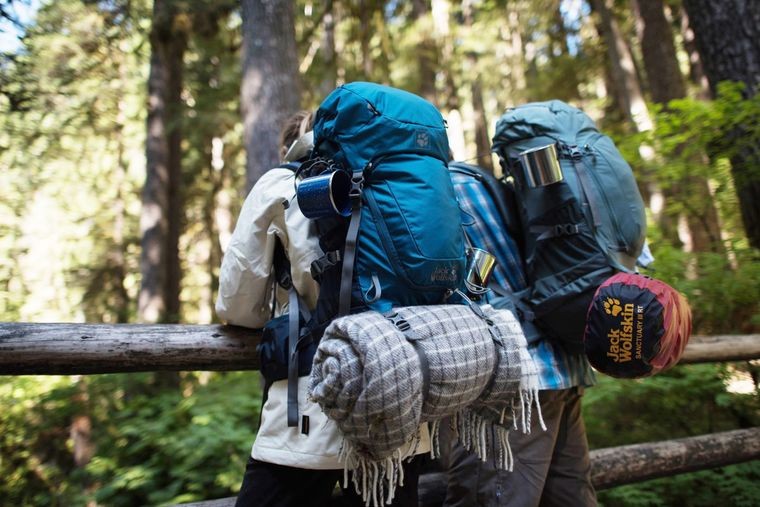The type of shelter you take with you into the backcountry is one of the most important items you must pack, and one of the heaviest.
To save weight on your shelter, you must minimize. Minimize the size of the shelter and what you pack in. If possible, consider leaving the tent stakes at home and securing your tent/fly to trees and with rocks.
There are several options available, ranging from ultra-light tents to floorless tepees and tarps, or a Khione Shell (khioneoutdoorgear.com) that even lets you leave the sleeping bag at home. All of them protect from wind and rain.
Heavy four-season expedition tents aren't needed during spring, summer and fall. Also, four- or six-person tents aren't needed for one or two people. If you can keep a single-person tent around 2 pounds, you will be much happier. Tarps can weigh in at under a pound. If you are going to be backpacking and camping with two or more buddies, consider one common shelter, with each member of the group carrying some of the shelter components.
In one or two areas that our group hunts in, we can drive right to where we want to set up a base camp. It is pretty easy to pack everything we want in the trucks and set up a pretty comfortable camp complete with folding camp chairs, etc.
However, if any of us are planning to really hike deep into the area, or we have to spend a few hours hiking into the area before we are where we want to hunt, we want the lightest load possible with just the essentials, because we are also carrying our rifles and about 20 rounds of ammunition each. Over the years, we have learned to keep our hunting backpacks at fewer than 30 pounds and we weigh them on a scale to make sure we are under 30 pounds.
So buy a scale to weigh your backpack and try some of the available meal plans that don't require a stove fuel or eating utensils. Google it and you will probably find some meals that appeal to you. Consolidate equipment with the other members of your group as mentioned above. At any rate, one stove and one water filter can serve everyone in the group.
Lighter-weight boots are one item that hunters have been considering for some time, and you should, too. Those big, heavy and sturdy boots that we were told to get and we have become accustom to wearing are not always necessary. As a matter of fact, they may never be the best choice. Hunting, backpacking and camping gear has changed a lot the last 15 years or so.
I prefer a full-grain leather, sturdy over-the-ankle pair of waterproof hunting and hiking boots that weigh just under 2 pounds per pair. You take thousands of steps on a hunting or backpacking trip, which is 1.5 to 2 pounds more weight with the heavier boots each time you take a step. That weight can take its toll. That is why hunters who generally carry a little more weight in their backpacks are looking at lighter-weight, but still rugged, well-constructed boots.
Those who like to spend time backpacking, camping and hunting should also have a fitness regimen that will keep them in good cardiovascular condition. The regimen should include flexibility and strength workouts as well. Backpacking, hiking, camping and hunting require good conditioning. Be smart and minimize the weight of the load you carry into the backcountry. You will enjoy the trip more if you do.
Smokey Merkley was raised in Idaho and has been hunting since he was 10 years old. He was a member of the faculty of Texas A&M University for 25 years. There he taught orienteering, marksmanship, self-defense, fencing, scuba diving and boxing. He was among the first DPS-certified Texas Concealed Handgun Instructors. He can be contacted at mokeydo41245@hotmail.com.



